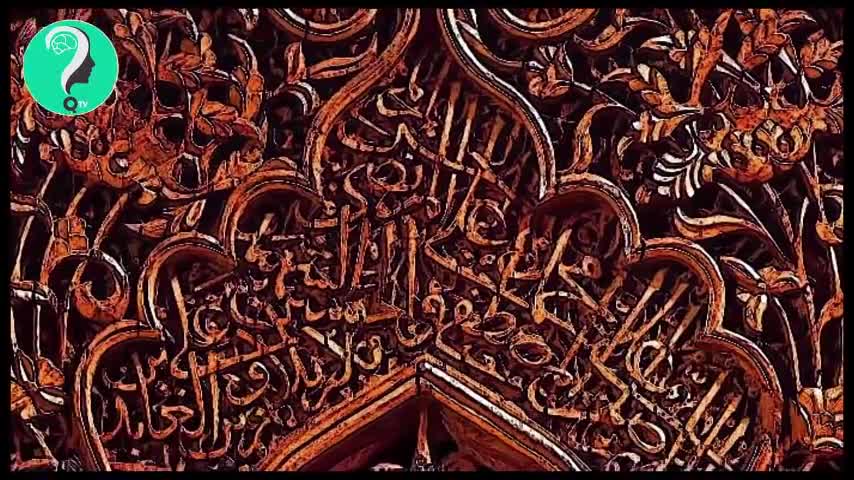Premium Only Content

Muqam e Ibrahim Ki Dilchasp Kahani l An Amazing Story Of Muqam e Ibrahim l
Hazrat Ibrahim A.S known as Ibrahim (Arabic: إِبْرَاهِيْمُ, romanized: ʾIbrāhīm pronounced [ʔɪbraːˈhiːm]) in Arabic, is recognized as a prophet and messenger of God in Islam. Abraham plays a prominent role as an example of faith in Judaism, Christianity, and Islam. In Muslim belief, Abraham fulfilled all the commandments and trials wherein God nurtured him throughout his lifetime. As a result of his unwavering faith in God, Ibrahim was promised by God to be a leader to all the nations of the world. The Quran extols Ibrahim as a model, an exemplar, obedient and not an idolater. In this sense, Abraham has been described as representing "primordial man in universal surrender to the Divine Reality before its fragmentation into religions separated from each other by differences in form".:18 The Islamic holy day 'Eid al-Adha is celebrated in memory of the sacrifice of Abraham, and each able bodied Muslim is supposed to perform the pilgrimage to pay homage at the Kaaba in the Hejazi city of Mecca, which was built by Abraham and his son Ishmael as the first house of worship on earth. Muslims believe that the prophet Abraham became the leader of the righteous in his time and that it was through him that Adnanite-Arabs and Israelites came. Abraham, in the belief of Islam, was instrumental in cleansing the world of idolatry at the time. Paganism was cleared out by Abraham in both the Arabian peninsula and Canaan. He spiritually purified both places as well as physically sanctifying the houses of worship. Abraham and Ismāʿīl (Ishmael) further established the rites of pilgrimage, or Ḥajj ('Pilgrimage'), which are still followed by Muslims today. Muslims maintain that Abraham further asked God to bless both the lines of his progeny, of Isma'il and Isḥāq (Isaac), and to keep all of his descendants in the protection of God. Abraham's personality and character is one of the most in-depth in the whole Quran, and Abraham is specifically mentioned as being a kind and compassionate man.Abraham's father is understood by Muslims to have been a wicked, ignorant and idolatrous man who ignored all of his son's advice. The relationship between Abraham and his father, who in the Quran is named Azar, is central to Abraham's story as Muslims understand it to establish a large part of Abraham's personality. The Quran mentions that Abraham's father threatened to stone his son to death if he did not cease in preaching to the people. Despite this, the Qur'an states that Abraham in his later years prayed to God to forgive the sins of all his descendants and his parents. Muslims have frequently cited Abraham's character as an example of how kind one must be towards people, and especially one's own parents. A similar example of Abraham's compassionate nature is demonstrated when Abraham began to pray for the people of Sodom and Gomorrah after hearing of God's plan through the angel Gabriel for them. Although the angel Gabriel told Abraham that God's plan was the final word, and therefore Abraham's prayers would be of no effect, the Quran nonetheless reinforces Abraham's kind nature through this particular event. The Ziggurat of Ur, where idolatry was practiced in ancient times, in 2010 Ibrahim was born in a house of idolaters in the ancient city of Ur of the Chaldees, likely the place called 'Ur' in present-day Iraq, in which case, the idolaters would have been practitioners of the hypothesized Ancient Mesopotamian religion. His father Azar was a well-known idol-sculptor that his people worshiped. As a young child, Ibrahim used to watch his father sculpting these idols from stones or wood. When his father was finished with them, Ibrahim would ask his father why they could not move or respond to any request and then would mock them; therefore, his father would always scold him for not following his ancestors' rituals and mocking their idols. Despite his opposition to idolatry, his father Azar would still send Ibrahim to sell his idols in the marketplace. Once there, Ibrahim would call out to passersby, "Who will buy my idols? They will not help you and they cannot hurt you! Who will buy my idols?" Then Ibrahim would mock the idols. He would take them to the river, push their faces into the water and command them, "Drink! Drink!" Once again, Ibrahim asked his father, "How can you worship what does not see or hear or do you any good?
-
 LIVE
LIVE
Right Side Broadcasting Network
5 days agoLIVE: President Donald J. Trump Holds Inauguration Eve Rally in Washington D.C. - 1/19/25
31,236 watching -
 8:36
8:36
China Uncensored
1 hour agoIs China’s EV Industry Collapsing?
4.6K14 -
 4:17:00
4:17:00
Tundra Tactical
17 hours ago $15.51 earnedSHOT SHOW 2025!!!!!! Whats Are We Looking Forward To Most
94.8K15 -
 22:53
22:53
Film Threat
23 hours agoA TRIBUTE TO VISIONARY DIRECTOR DAVID LYNCH | Film Threat News
3.62K2 -
 20:30
20:30
Exploring With Nug
23 hours ago $0.61 earnedMissing Father of 2 FOUND Underwater In Shallow Pond!
2.78K2 -
 19:19
19:19
This Bahamian Gyal
1 day agoThe View PRAISES Michelle Obama for DITCHING TRUMP inauguration, "when they go LOW, go even LOWER"
1.76K7 -
 14:25
14:25
Degenerate Jay
18 hours agoThe Flash Movie Failed Because People Hate The Character? Sure.
2.69K4 -
 28:30
28:30
CharLee Simons Presents Do Not Talk
5 days agoSam Anthony from YourNews.com (with host CharLee Simons)
6.08K -
 52:34
52:34
PMG
14 hours ago $0.42 earnedHannah Faulkner and Steve Friend | EXPOSE THE FBI CORRUPTION - KASH PATEL
3.81K2 -
 25:33
25:33
marcushouse
1 day ago $35.61 earnedStarship Exploded! What Went Wrong? Flight Test 7 Explained
168K59